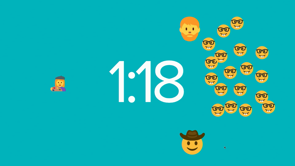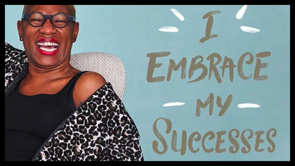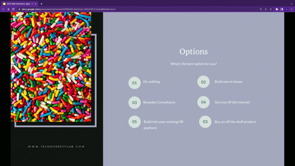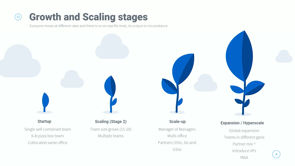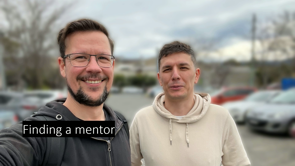
(upbeat music) - Okay, so this is what we're gonna talk about today. We're gonna talk about saying, "I don't know." So a lot of the work that we do as a company is working with organisations who want to uplift their culture and want to get to a place where people can have positive dialogue, positive conflict, give great feedback to each other in their daily, organisational lives.
And the one thing that we identified that kind of is a great indicator on the level of an organization's ability to talk to each other is quite simply saying this.
It's talking about saying, "I don't know" to people. And this is the thing that gives you that indicator on how willing people are to have conversations, how willing they are to expose areas of ignorance and how willing they are to learn and to start working towards things together. So, I've been spending the past 12 months putting this talk together.
I've spoken to people in the UK, in the US, and Australia to get together an understanding of why this correlates so well with having a culture of communication and a culture of feedback and conflict.
So it's not a great talk without a load of Ponce quotes. But the main reason this is here is that last quote. Does anybody recognise what that is? I always try and find a way to get some British stuff into every, single talk that I do.
Does anybody, Phil you, you must recognise it. Yeah, obviously.
So this is from "The Hitchhiker's Guide to the Galaxy" which is one of my favourite books and if you ever want some great quotes from people, Douglas Adams has some amazing quotes about things. And this is one of my favourites.
"I'd far rather be happy than right any day." So the main reason for this is just to show you that this is something that we've been struggling with as mankind for quite a long time.
And I don't think I'm gonna solve it in this talk but I do want to start the dialogue, I do want to start the conversations.
And I want to, part of this is me wanting to get feedback from you guys and have conversations afterwards. The number one reason why people don't say, "I don't know" in the research that I've done is ego. And not necessarily what you might think of as ego. Not necessarily just that kind of ego that we think of, which is I know better than everybody else. It's both sides of ego.
It's kind of the more psychological definition of ego which is sense of self and sense of who I am, what I know and what I can do.
And I honestly think the reason behind this is how we recruit, interview and train people in technology. If you think about when you put a job offer out there, you say, "must know Angular, must know React." And this kind of phrasing of a knowledge base. We always talk about what do you know.
The problem with that is you're ending up where you're positioning somebody where if they end up in a situation where they don't know some obscure part, or some maybe not obscure part of something they said that they knew in an interview, then you're forcing them into a scenario where they're having to break their ego.
They're having to either let you down or themselves down. And so this kind of sense of self is a thing that really is the main driver of people not being able to say, "I don't know." The reason that I think we can move beyond this is by rephrasing the discussions around knowledge into discussions around capability. So rather than saying something such as, "Do you know X, "do you know Y?" Rephrasing it to something along the lines of, "Must be able to do A, must be able to do B." 'Cause one is a statement of knowledge which can be found to be false, and the other is a statement of capability, which is less likely to be found false.
So rather than saying, "Must know Angular" on a job specification, saying, "Must be able to build an e-commerce website "using Angular." And this kind of rephrasing changes the conversation from a dichotomy of do I know this thing, or do I not know this thing into a dialogue of what can you do using this thing. So, ego for me is the number one thing in all my research and the second one is imposter syndrome.
Which is kind of a follow on from ego 'cause this is something that if you look at all the research that's been done, technology suffers from more than other industries and I think it actually follows on from that first point. I think when we're forcing people to state a knowledge definition, a knowledge focus, then we're forcing them to a place where they can have imposter syndrome more easily. Because if I make a statement of capability, of I can build something using something, then I can show you that.
If I make a statement that I know something, then as soon as there's one obscure piece of this thing, then I'm proving myself to be a liar.
And there's no one person that knows any one of our modern technologies. Like there's no one person that knows everything in the .net framework. There's no one person that knows everything in a particular API from a particular vendor. And so I think changing the way that we're phrasing things is a really, really important point in terms of interview processes, job adverts and the way that we think of ourselves as people. Really those are the reasons why in my research and part of this, the reason for doing this talk is for me to continue these conversations.
I'd love for you to come up afterwards and tell me I'm wrong, tell me I'm right, tell me you've got a different opinion.
'Cause I really love doing this talk but what I love doing more is I love having the conversations afterwards. And so please come and talk to me, if you disagree with me, especially.
So where we want to get to is working on this so we can stand there and we can say these words and we can say these words in a way where we don't feel any shame, we don't feel like our ego is taking a hit and we don't feel like we're suffering from imposter syndrome.
We want to be able to say, "I don't know.
"I am an expert, "but I don't know that particular information." But there's a problem with this phrase.
Does anybody want to guess what the problem is? Well, there's a couple of problems.
Nobody? Do I have to volun-tell somebody? (audience laughs) Okay, so the problem with this phrase is it ends the conversation.
It's a very final statement.
It's an end of that line of inquiry.
"I don't know." Where do you go from there? If I asked Beatra a question about bees and he said, "I don't know." He ends the conversation.
So being able to say the words is the first part of the journey.
The second part of the journey is being able to say it in a way that continues the conversation and leads into a place of knowledge and a place of experience and a place of understanding. And the way we do that is by putting that little three-letter word at the end.
"I don't know, but." And what comes after the but is how you continue that conversation.
So, "I don't know but I'll speak to Jessica. "I don't know but, I'll ask Henry.
"I don't know but." This is the next step.
So the first step is how do we get the courage and the confidence to actually say these words in the first place and the second step is how do we say it in a way that continues and actually moves us onwards. So there's some examples here that I'm gonna go through, which are how you can say, "I don't know but" in various circumstances.
So the first one is as an expert.
Does anybody know who Richard Feynman is? Phil again, obviously.
Yeah.
Does somebody want to say who Richard Feynman is? He was involved in that process.
Yeah.
So he was a very, very famous US physicist. And he had a great phrase which I loved.
Which is, "You can instantly tell the difference "between a real expert in something and a phoney expert. "'Cause a real expert will say I don't know. "But a phoney will always try and fake the answer." This can be rephrased as "phoney experts bullshit all the time." If you want a bit more colloquial way of saying it. But I think there's something that he missed in this which is, I agree with him but I think the other important part is that not only will real experts admit they don't know, but there'll be a different expression on their face when they say the words, "I don't know." It'll be happy 'cause a real expert in something, when they find out they don't know something will be excited by it.
They'll be excited by the ability to go and learn something new, something that they haven't discovered before. And so for me, this is, the focus is saying "I don't know" in a way that is happy.
That's what I strive for.
I strive for being excited by the areas of my ignorance. 'Cause being relentlessly curious is something I try and emulate.
As an example of that.
When I first started doing public speaking, Phil was actually there the first time I ever did a talk, yeah.
I was really nervous doing it and I thought, "Okay, I'm doing a talk." I was doing a talk on a technical subject.
And I thought, "Okay, I'm here as an expert, "and I need to show that I know what I'm talking about." So at the end of the talk, somebody was asking me questions that I didn't know the answer to.
And I'm not proud to say it, and there's a video record of this, but I bullshitted. Yeah, I made stuff up.
And I'm really not proud of it.
And one of the best things you can do if you do this kind of stuff, if you do talks and workshops and stuff, is you can watch yourself back.
And record yourself and watching is really hard, especially the first few times.
You get to realise all the little quirks you do and the things you do that you don't notice you're doing. But I saw that I was doing this, I saw that I was making things up.
And I made myself a promise that the next time it happened, I wouldn't do that.
I would just stand there and I would just say, "I don't know." And it was scary.
But I did it.
And the ground didn't open up and lightning didn't strike me.
And I didn't look like an idiot.
And interestingly enough, I had a really interesting conversation with somebody. Because they had an opinion that was perfectly valid. And when I didn't stop them with my phoney knowledge and actually had a conversation, I learned something and they learned something. And the best Q and A's I've ever had after talks have been when I've said, "I don't know" to somebody because this is how you learn things.
This is how we learn things.
You have conversations, you have a dialogue, not a monologue.
So I really encourage people to have conversations with me about this afterwards.
Another situation where we sometimes have to say, "I don't know," is when we're dealing with suppliers or clients as a supplier.
And a very, very similar story.
When I first started doing conversations with clients going back a few years.
I did exactly the same thing.
I tried to bullshit in a client meeting.
Luckily for me, my boss pulled me to one side and said, "Clients don't expect you to know everything. "They just expect you to know "how to find out as much as you can." And that kind of difference in phrasing, the difference between being valued by somebody based on what you know and being valued by somebody based on what you can find out. That kind of changed the way that I thought about things. And so that's why these are the phrases that I help people with now so when somebody, when I'm coaching somebody and they're struggling in these things, it's this kind of pattern of "I don't know but" and then something else.
"I don't know, but I know someone who might "and I'll get back to you." And get back to them.
(laughs) I've fallen foul of that.
"I don't know but let's work through some ideas together." All right, it's great.
'Cause this is the great opportunity for you to work collaboratively.
And "I don't know but I'll find out "and I'll get back to you." So this kind of pattern is something that we can use as a teaching method for when people are struggling with this.
So when we've got over their initial reaction of why they don't want to say, "I don't know" and now we're into how you can do it, this pattern is crucial.
Last example.
So there were some conversations earlier about and I think I've had some conversations with some people already about this.
The area that I do the most work in, is in technical leadership and it is definitely in this area of, we promote rockstar engineers into leadership positions, and then wonder why they fail.
So I do a lot of work with companies in helping technical leaders understand why they don't need to be the smartest person in their team. Because I think this is one of the issues I was, doing some work with Australia Post a couple of months ago, and there was this, I feel really sorry for this guy, he'd been promoted to run their cloud infrastructure and he was telling me, "For the past six months "since I've had my promotion, "I've been spending every evening and every weekend "reading all the AWS documentation, "'cause I don't know anything about it "and I don't know why my girlfriend's still with me." (laughs) And it's because he had this image in his head that being a leader means you have to know the answer to every question. Because he had this image in his head that being a leader means you never say, "I don't know." And it's because, falling back into this situation of being valued based on what you know as opposed to what you can do.
This is what I said to him, "Build a team of people under you "who fill in each other's knowledge gaps, "including your own.
"But you don't have to be the smartest person in the group, "but you have to be the person "who can bring together the smartest team." Because as leaders, we don't necessarily always have to have the answers to all the questions, but we have to have the direction of where we want to get to, we have to help the team get there.
So again, this is some examples of saying, "I don't know" in situations which continue the conversation as a leader. So, "I don't know, do you?" Great coaching moment.
"I don't know, but do you?" Helping that person go through and explore something. And you can use this even when you do know the answer, 'cause it's a great way to coach people.
"I'm not sure, can you help me find out?" "I don't know but Jessica does." Great way to get collaboration between people in a team. If you don't know the answer but you know somebody else does, putting those people together is a great way to help them work.
I love this quote.
I'm not gonna read it all 'cause it's too long, but I'm just gonna read the start of it.
It's from the CEO of Etsy.
"In order to have a great company, "you have to admit when you don't know something. "An overly self-confident leader "is the worst kind of leader.
"It's okay to admit you don't have the answer, "the key is to build a team that does." And I think that says in one slide pretty much my whole talk.
That's where I think we should be moving towards and everything else in my talk is about how we can get there.
And I'd love to have conversations with people if you have other ideas.
I did this talk in Philadelphia last week, at the end of the talk somebody came up to me and said, "Great, thank you, but how do you actually, "how do I help myself do that?" What do you think I said? "I don't know." Because it really is the individual person and the reasons why somebody doesn't say, "I don't know" is really specific to them and it will be a combination of their ego, their self image, their internal narrative about themselves, it'll be a combination of the culture in the organisation, their position within it, the people in their team, the people above them.
Their particular circumstance will be driving the reasons why they're afraid of saying this.
And so it's got to be a conversation, it's got to be a conversation about what helps them specifically and there's no one-size-fits-all solution to this. So I just wanted to start the dialogue and start talking about this.
So that's my talk.
And let's have a conversation about those things on the right hand side.
Thank you.
(audience claps) (upbeat music)


